Some 65 former Russian lawmakers are to convene for a congress on Friday to establish what organizers say will be the first legitimate alternative parliament to the Federal Assembly of Russia, which critics say is no more than a rubber stamp for President Vladimir Putin.
The First Congress of People’s Deputies of Russia will begin on Friday in Jablonna, a suburb of the Polish capital of Warsaw. By Sunday, organizers hope, the new body will have agreed on a draft constitution to guide Russia through a future transition to democracy and elected an executive committee to lobby for international support and recognition.
Moscow’s war in Ukraine—now in its ninth month with no end in sight—has galvanized the Russian anti-Putin movement abroad. For some, the quagmire conflict signals the beginning of the end of what they see as Putin’s neo-imperial kleptocratic regime. Now, various would-be successor movements are positioning themselves to take the reins.
Ilya Ponomarev—a member of the Russian parliament from 2007 to 2016 and the only deputy to vote against the annexation of Crimea in 2014—is one of the congress organizers. Now based in Ukraine, he told Newsweek the new body hopes to create a roadmap for Russia to follow after Putin’s ouster.
The Congress, he said, is intended as a big-tent event. “We have invited everyone,” he said. “We will even pass a special resolution calling for all the different political groups to join forces and to send their representatives…It’s an assembly of deputies, and the deputies decide where to go.”
“It’s not about personalities,” he said. “Yes, I was one of the authors of the idea, but I don’t intend this to be my private show…I will very much try to influence and present my position. But at the end of the day, it will be the decision of the majority.”
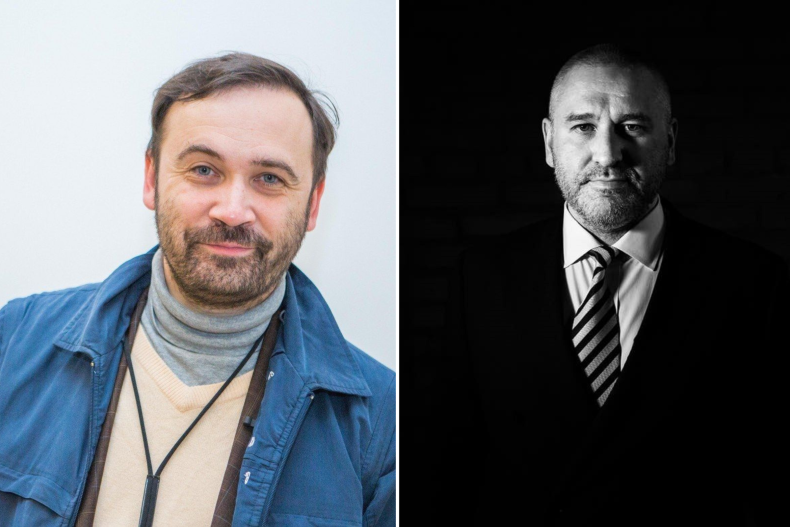
Fellow organizer Mark Feygin—a former Russian lawmaker and a human rights lawyer who has represented high-profile defenders including the Pussy Riot punk band—told Newsweek that he, Ponomarev, and former Russian deputy Gennady Gudkov will likely join the congress’s executive committee.
But even within that group, there will be divergence, he explained from France, where he now lives. “There is no single strategy for interacting with all the different centres of power,” Feygin said of advocating for international support—primarily in Ukraine, the European Union, the U.K., and the U.S.—once the congress is formed.
Ponomarev said there are figures from Ukraine, Poland, Lithuania and the European Parliament attending the congress to observe. “People will be watching and looking at how it goes. After we are done, then we’ll start actual talks and negotiations.”
Anna Fotyga, a Polish member of the European Parliament and a former foreign minister, is one of those foreign politicians who will be attending. Fotyga told Newsweek that widespread support for the war within Russia necessitates systemic political change.
“Putin and the Russian parliament have lost their legitimacy many years ago, not only with stolen elections but also fake constitutional referendums,” she said. “Those people and this system have no future.
“But it cannot be changed without an active role of Russians themselves. I am glad that finally there is a movement ready to take this responsibility. There is a long way to go, but it is good to be ready when the time comes.”
The congress’s international outreach will begin in earnest after this weekend’s plenary. But convincing foreign governments to drop official recognition of Russia’s Federal Assembly is an ambitious goal, even with the Kremlin’s war on Ukraine.
Moscow would likely consider such a step a severe escalation of a conflict, which Western leaders are already wary of spiralling into a broader confrontation with Russia.
Fotyga, though, said that “credible and organized opposition in Russia as such does not exist…the future leaders of democratic Russia should be found among those individuals who openly oppose the war.”
“I’m cautiously optimistic,” Feygin said. “I still want to see how it unfolds and basically take it one step at a time.”
Ponomarev has recently made headlines due to his involvement with the Freedom of Russia Legion, a volunteer unit fighting alongside Ukrainian forces, and his claimed work with the little-known—and according to some observers, fabricated—National Resistance Army (NRA), which has claimed attacks inside Russia including the assassination of far-right ideologue Darya Dugina.
Ponomarev’s advocacy for the NRA has drawn criticism from other opposition leaders. Chess champion and pro-democracy activist Garry Kasparov told the Kyiv Post the NRA is “fake,” and accused Ponomarev of “using this to advertise his own agenda.”
Kasparov is among the most prominent anti-Putin figures agitating for revolution, along with jailed anti-corruption activist Alexei Navalny and oligarch-turned-dissident Mikhail Khodorkovsky.
In August, Kasparov and Khodorkovsky fronted the latest iteration of the Congress of Free Russia in Vilnius, Lithuania, seeking to build cooperation between the Russian anti-Putin diaspora and Western organizations and governments.
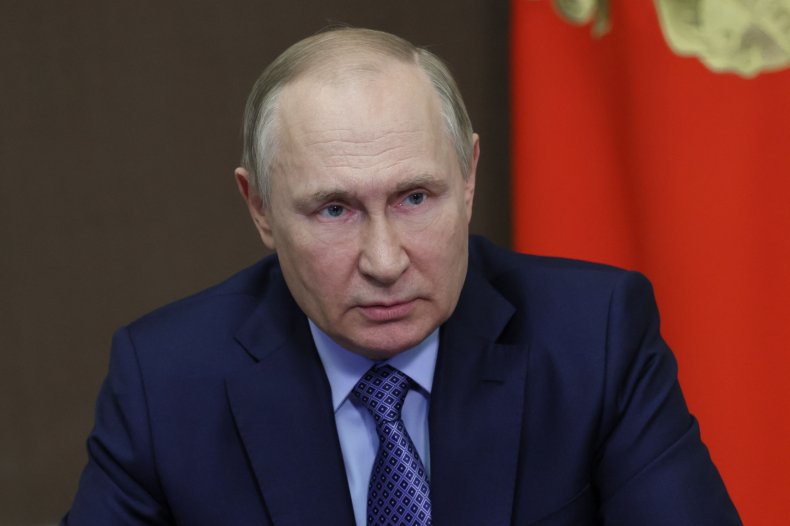
Navalny’s team, meanwhile, are continuing to push for the politician’s release from jail while guiding international sanctions on key pro-Kremlin figures and working towards Navalny’s vision of a future Russian parliamentary republic.
Ponomarev told Newsweek that the Jablonna congress is open to all opposition strands whatever their misgivings. “They can come and join and present their concepts and opinions,” he said of deputies aligned with other opposition leaders. “If the majority is on their side, they will prevail.”
Ponomarev said lawmakers aligned with Navalny, Kasparov, and Khodorkovsky will all be in attendance, as will some of Navalny’s regional coordinators. Navalny’s top team, however, will not.
“Ponomarev is a well-known thug,” Navalny’s chief of staff Leonid Volkov told Newsweek, suggesting the former is an “ally” of former Putin adviser Vladislav Surkov, who is now living under house arrest. Ponomarev has previously distanced himself from Surkov, with whom he worked while working on a government project for then-President Dmitry Medvedev.
“He is not an opposition politician at all,” Volkov said of Ponomarev, adding that Navalny’s network of regional coordinators was disbanded in 2021.
Ponomarev said he is confident that the congress will overcome ideological disputes and agree on “the most critical documents,” namely the founding declaration of the body and a resistance act setting out what anti-Kremlin methods—including armed violence—the organ would support and what it would denounce.
The contest of ideas and organizations may reinvigorate long-term tensions. “The Navalny side has always said that I’m an FSB agent, and the majority of his people are now saying that I’m a Ukrainian agent,” Ponomarev said. “There’s a lot of very funny debates on social networks to decide whose agent I am.”
Some opposition figures will not see the weekend’s congress as legitimate. Feygin acknowledged that the congress will need to hold some form of elections—perhaps online—to bolster its standing with the Russian population and opposition, plus to be able to frame Putin’s government as illegitimate.
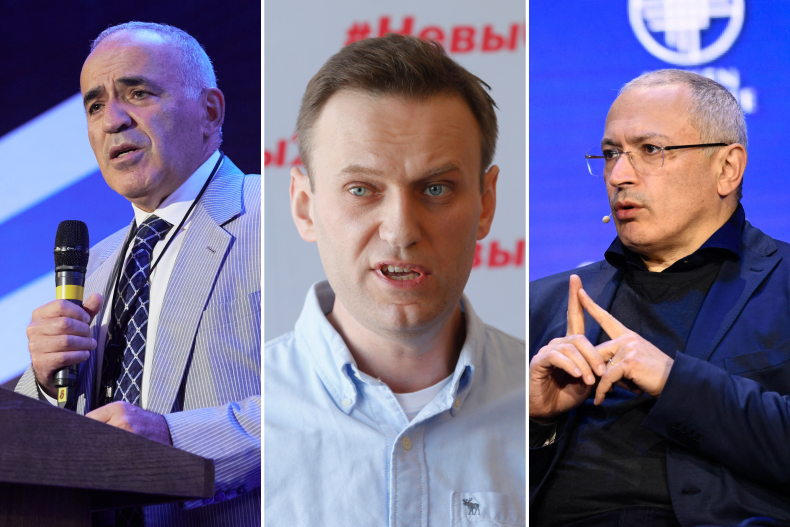
Different opposition movements, too, cannot and should not be sidelined, Feygin said. “People do flow from one to another, and there is no strict delineation,” he added.
“We cannot ignore Navalny, who could be a legitimate candidate and legitimate center of political power…unfortunately, he’s in prison right now,” Feygin said. Navalny’s networks “are closer aligned with our goals because they target inside Russia
Mark Feygin
Kasparov and his colleagues in the Congress of Free Russia, Feygin said, are focused on organizing abroad. “They’re not really targeting internal Russian politics and processes,” he said, though he said they could prove helpful in building closer ties with influential foreign leaders and groups. Newsweek contacted Kasparov’s team for comment.
“Our agenda is to find a way to induce changes in Russia right now,” Feygin said. “We’re not waiting for the future. We’re not sitting on the sidelines and talking about it and then waiting for an opportune moment to come back to Russia when things change…We are focusing on how we do it today. So this is the core difference between us.”
Armed resistance, he said, is one lever. “Our organization will at some point need to also have a military or force representation because everything cannot be resolved just politically,” Feygin said.
Ponomarev said he was working closely with a variety of violent grassroots resistance inside Russia, as well as volunteers fighting in Ukraine who see themselves as the vanguard of the new Russian revolution.
Ponomarev said the congress will exist in a “a different dimension” to grassroots resistance groups inside Russia—whether armed or peaceful—and Russian volunteer military units fighting alongside the Ukrainian armed forces. But Caesar, the nom de guerre of a member and spokesperson of the Freedom of Russia Legion, which is engaged in combat in Ukraine, may get directly involved by the end of the congress.
“I would propose to elect him to the executive committee of the congress,” Ponomarev said of Caesar, who is fighting alongside Ukrainian forces and is expected to take part in the congress remotely. “I very much hope that the congress would support my proposal.”
“We are not against working with these groups, so we’ll work with them at different stages,” Feygin said. “We probably should put more emphasis on creating internal resistance and supporting internal organized groups within Russia,” he added.
“They’re weak but they exist now and they do need help.”
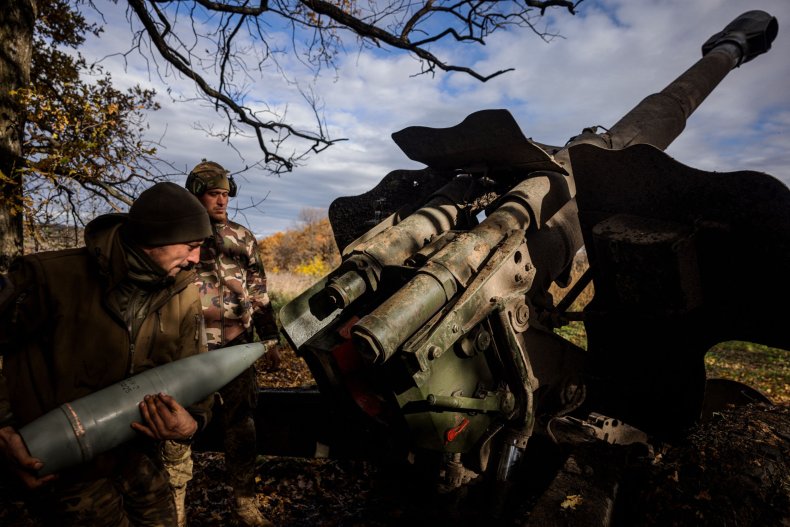
Source: Newsweek


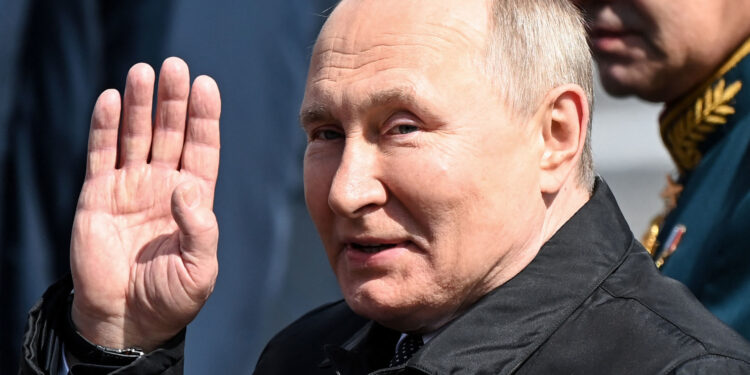
Recent Comments